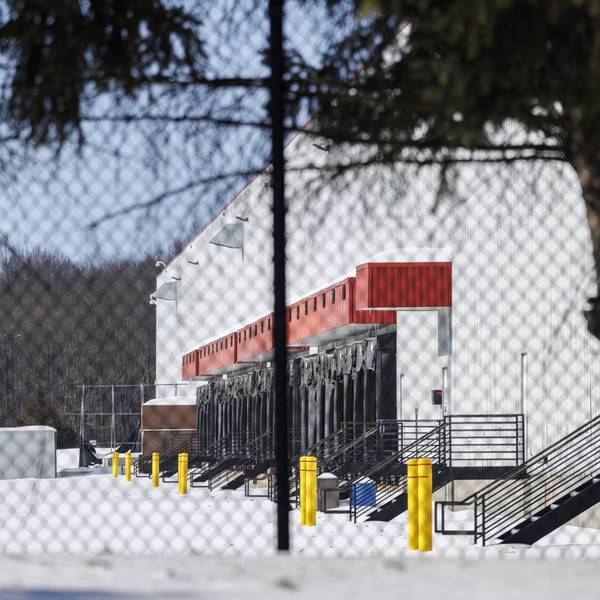While President Donald Trump's anti-immigrant agenda has been disastrous and deadly for asylum-seekers fleeing violence and persecution in their home countries, a Daily Beast investigation published on Thursday found that the White House's xenophobic policies have been a major boon for the private prison industry--at the expense of American taxpayers.
According to the Daily Beast's Adam Rawnsley and Spencer Ackerman, Immigration and Customs Enforcement (ICE) budget records show that for-profit immigrant detention centers run by corporate giants like CoreCivic and GEO Group raked in over $800 million in taxpayer money in 2018 alone, thanks to generous government contracts that are largely kept secret from the public.
"For 19 privately owned or operated detention centers for which the Daily Beast could find recent pricing data, ICE paid an estimated $807 million in fiscal year 2018," Rawnsley and Ackerman reported. "Those 19 prisons hold 18,000 people--meaning that for-profit prisons currently lock up about 41 percent of the 44,000 people detained by ICE. But that's not a comprehensive total, and the true figures are likely significantly higher."
As Ackerman pointed out on Twitter, the estimated $807 million cost to taxpayers is also "certainly an undercount, because ICE's accounting of how many for-profit prisons it contracts to is opaque."
On top of documenting the big profits private prison corporations are making from Trump's immigration dragnet, the Daily Beast also highlighted the brutal and "exploitative" conditions of the for-profit detention facilities, where detained aslyum-seekers work for as little as $1 a day.
Yesica, a 23-year-old woman who fled El Salvador after MS-13 persecuted her for being a lesbian, described the Texas facility where she is currently detained as "like a torture chamber."
"This is a really terrible place," Yesica, who works the kitchen graveyard shift for $3 a day, said of the Joe Corley Detention Center. "It's inhumane."
Emily Ryo, an associate professor at the University of California's Gould School of Law, told the Daily Beast that the working conditions at these facilities are effectively indistinguishable from "slave labor."
"To the extent that the industry is in the business of expanding the system so they can make more money off holding more immigrants that can be confined, and doing everything possible to profit off of it by labor processes like getting detainees to work and paying them a dollar a day, there is very little distinction you can draw between slave labor and what they're doing," Ryo said.
Laura Lunn, an attorney with the Rocky Mountain Immigrant Advocacy Network in Colorado, agreed with this assessment, declaring, "The whole system is exploitative."
"It takes away the humanity of the people it detains and tells them, 'you can't be with your family, you can't go outside, you have very little agency, and while you're here, you've got to represent yourself in an immigration case without any tools, really, to succeed,'" Lunn concluded. "The labor piece of their detention is a small fragment of the ways their dignity is stripped from them. It's dehumanizing."




